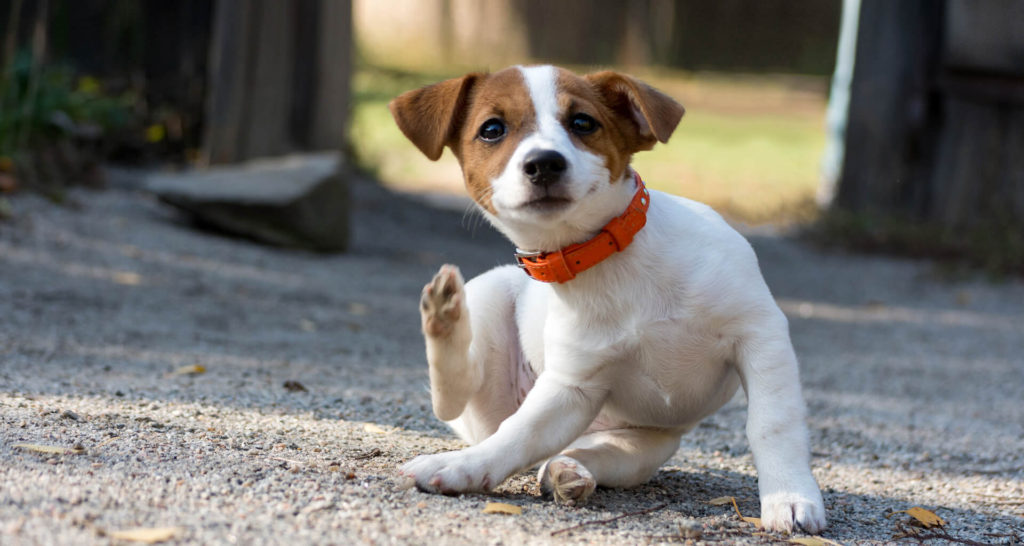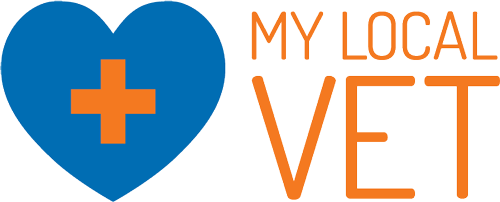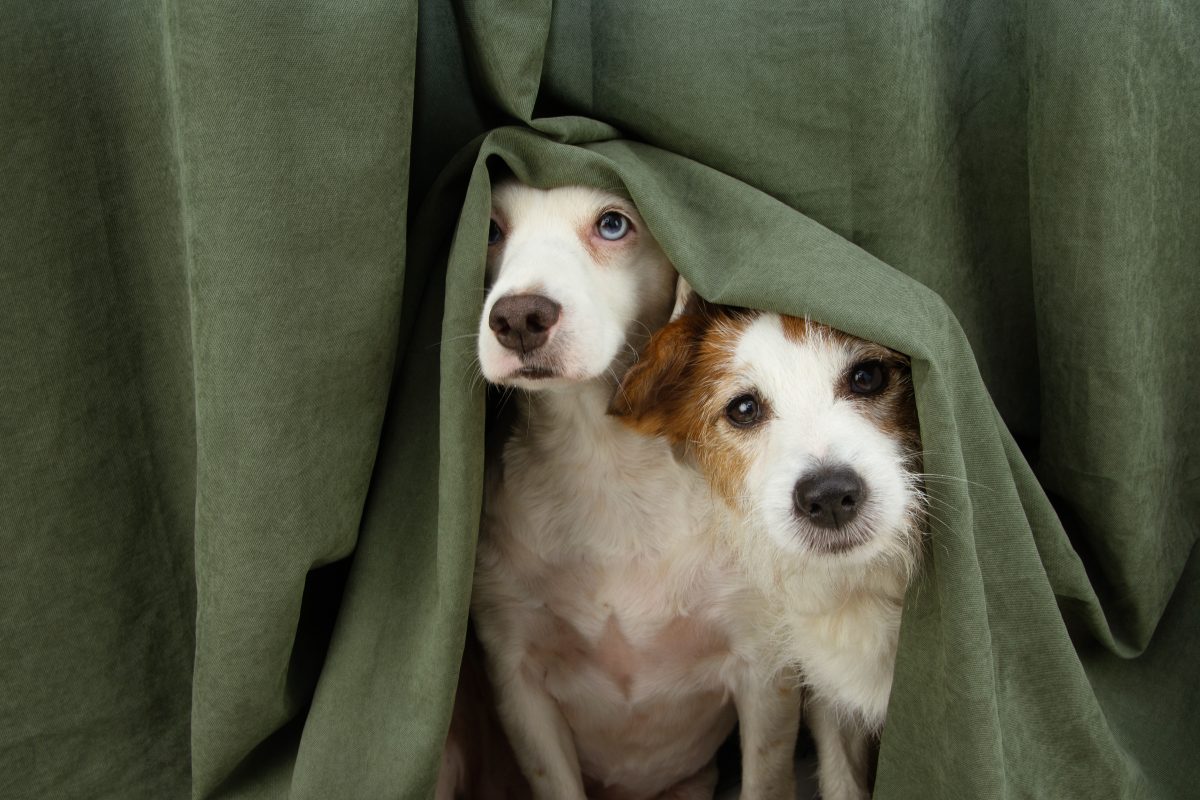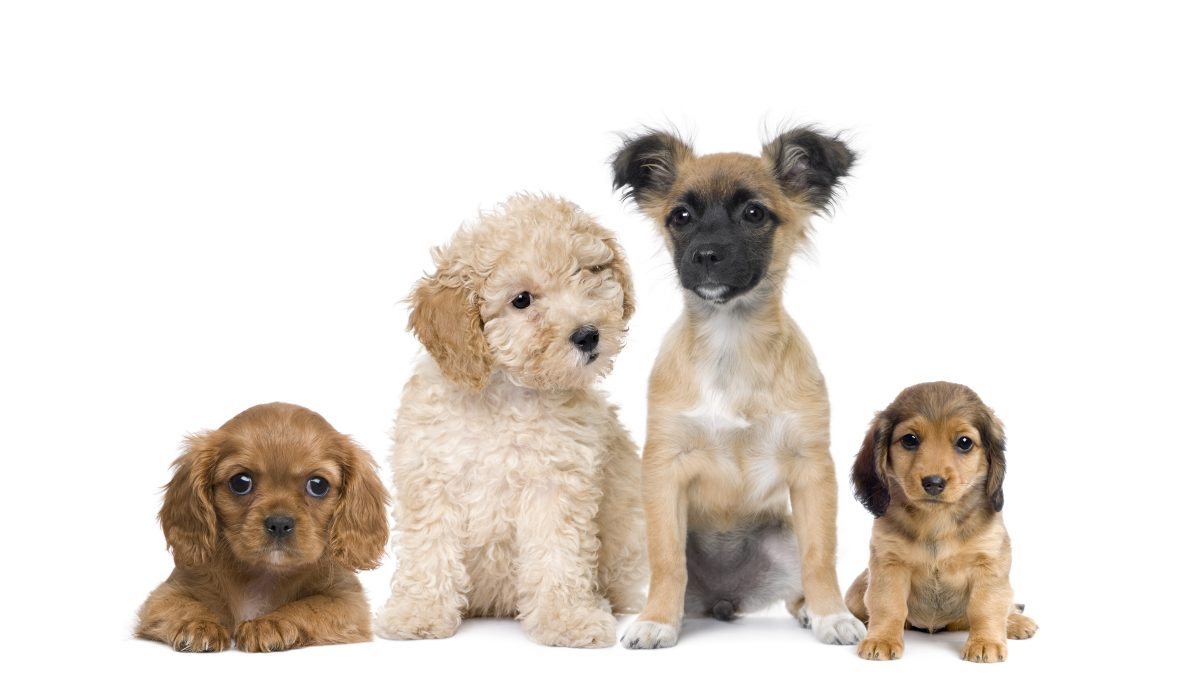Our furry friends are blessed with extremely sensitive hearing – unfortunately for us, this means they can also be extremely sensitive to scary sounds!
Noise Phobias
Storms and fireworks are some of the most common noise phobias that we see in dogs and cats. Unfortunately, these fears are what we call “self-reinforcing” behaviours – every time your pet has a stressful experience during fireworks or bad weather, they will remember it next time around, and become even more anxious every time. Thankfully, we have plenty of options up our sleeve to avoid this and help them get through these scary events.
Body Language and Signs of Stress in your Pet
1. Make sure you are looking out for signs of stress in your pets – they can be subtle! Your pet may hide, or pace restlessly, or seek out comfort from you. Many dogs will yawn or lick their lips when they are stressed. There is no harm in calmly comforting your pet when they behave in an anxious way – contrary to popular myths, this will not worsen their anxious behaviour, so long as you remain calm yourself.

2. If you know your pet is afraid of the sound of storms, it is imperative to keep them securely contained on days when we know they are forecast, or when fireworks are expected (like New Years Eve). Bring them indoors well before the storm arrives, or make sure that your fences and gates are secure, especially if you are not going to be home that night yourself.
3. Make sure your pets have a safe, quiet place in the house to retreat to, with a comfortable bed and the windows closed to dampen the noise. Bring their food and water close to this spot so they don’t have to venture out too far. Turning the TV or some music on at a low level may also help to block out the sound.
4. Some pets can benefit from the use of calming pheromone products – such as Feliway for cats, and Adaptil for dogs. These are odourless sprays that mimic natural pheromones mother animals release to their young, and can help your pet feel calmer in their environment.
When its Time to Seek Help from your Vet
5. For some pets, the noise of fireworks or storms is just too much to handle. For these animals, anti-anxiety medication and desensitisation training is often needed. If you feel your pet may be this affected by the noise, please call us to arrange a consultation. Anxieties need to be taken just as seriously as any other health problem in our furry friends. It’s our job to make sure they feel as safe and comfortable as they can be. It is much more effective if we intervene earlier in the process, before their anxiety can spiral out of control.


